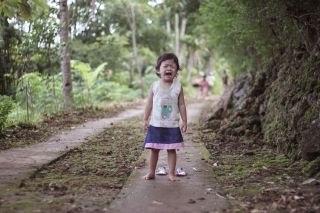Emotions
The Role Parents Play in Shaping Children's Emotion Regulation
Different strategies help children to navigate emotions.
Posted June 17, 2024 Reviewed by Monica Vilhauer Ph.D.
Key points
- Parents play a large role in shaping their child’s emotion regulation skills early in life.
- Supportive parenting is linked to positive outcomes in youth.
- A balanced approach that acknowledges children’s emotions and focuses on problem-solving is promotive.
- Parents who model positive emotions at home may enhance their children’s ability to regulate emotions.
Written by guest author Michelle Ramos, Ph.D.
In early childhood, parents play a critical role in helping their children develop their emotion regulation skills, that is, the skills to label, understand, and manage emotions. This process, known as Parent Socialization of Emotion (PSE), is essential for shaping how children learn to navigate their emotional world.
PSE is the process through which parents communicate their values about emotional behaviors, teach their children to understand and control their emotions, and model appropriate emotional responses. This guidance can happen both indirectly, through the emotional climate of the family and observational learning, and directly, through specific parenting practices, such as the ways in which parents respond to their child's emotions.
Research shows that supportive parental responses, such as focusing on the child’s problem or emotions, encourage and guide children's emotional expressions and regulation and are linked to positive outcomes in youth. Conversely, restrictive and punitive parental responses focused on verbal or physical punishment are associated with negative outcomes, including a higher risk of social, behavioral, and mental health issues (Hooven et al., 1995; Hurrell et al., 2015; Ramakrishnan et al., 2019).
By understanding how parents help their children manage emotional challenges, we can gain insights into the early contextual factors that influence emotion regulation. This understanding is crucial, as it impacts a wide range of child outcomes, from social and behavioral functioning to mental health issues, including eating disorders and substance use.

As our lab is interested in understanding the various ways parents might respond to their toddlers’ emotions, parents were asked to respond to a series of hypothetical scenarios in which a child gets upset or angry. Parents indicated the degree to which they would respond to each scenario in six theoretically meaningful ways of coping with children's negative emotions. The possible ways of responding corresponded to six coping strategies that reflect both supportive and non-supportive coping responses: problem-focused (like finding solutions), emotion-focused (like acknowledging feelings), expressive encouragement (like showing empathy), minimization (downplaying the issue), punitive (punishing the child), and distress (expressing their own negative emotions). This helped us explore the range of ways parents manage their children's negative emotions and identify three distinct patterns of strategy use:
1. Adaptive Support
This group of parents reported the highest levels of using problem-focused strategies, emotion-focused strategies, and expressive encouragement, and rarely used minimization, punitive responses, or express distress themselves.
2. Solution-Focused Responding
This group of parents seemed to prioritize problem-solving and emotional support, and engaged in low levels of minimization, punitive, and distress responses. With less emphasis on expressive encouragement, these parents focused more on solving problems and acknowledging emotions without as much emphasis on emotional expressiveness.
3. Diverse Strategy Use
This group used a diverse mix of strategies when responding to their child’s emotional displays. These parents showed high levels of problem- and emotion-focused responses and also reported engaging in moderate amounts of expressive encouragement, minimization, punitive, and distress responses.
Using these distinct patterns of parenting behaviors around emotions, we were also interested in understanding how these strategies influenced later child emotion regulation, as well as parental factors that might contribute to the different strategy uses.
Mothers who express higher levels of positive emotionality in the family climate were more likely to adopt adaptive support strategies, while mothers who express lower levels of positive emotionality tended to adopt solution-focused responding strategies.
Although overall expression of positive emotionality was low among parents using the solution-focused approach, when these parents did express positive emotion, this predicted better emotion regulation one year later when children were three years of age. This suggests that the balanced approach of focusing on finding a resolution, while still acknowledging their child’s emotions, may promote greater emotion regulation as parents model more positive emotion expression in the home.
As parents are unlikely to strictly adhere to one singular strategy across (and even within!) an emotional interaction with their child, it is important to understand how the use of different strategies can effectively foster the heathy development of emotion regulation.
About the guest author: Michelle Ramos, Ph.D., has been part of the Emotion Development Lab as a post doc since 2021. Her research centers on understanding factors that contribute to differences in the way children and adolescents participate in risky behavior. Her ongoing research is focused on the development of emotion regulation early in life and the role of parenting.
References
Hooven, C., Gottman, J. M., & Katz, L. F. (1995). Parental Meta-emotion Structure Predicts Family and Child Outcomes. Cognition and Emotion, 9(2–3), 229–264. https://doi.org/10.1080/02699939508409010
Hurrell, K. E., Hudson, J. L., & Schniering, C. A. (2015). Parental reactions to children’s negative emotions: Relationships with emotion regulation in children with an anxiety disorder. Journal of Anxiety Disorders, 29, 72–82. https://doi.org/10.1016/j.janxdis.2014.10.008
Ramakrishnan, J. L., Garside, R. B., Labella, M. H., & Klimes-Dougan, B. (2019). Parent Socialization of Positive and Negative Emotions: Implications for Emotional Functioning, Life Satisfaction, and Distress. Journal of Child and Family Studies, 28(12), 3455–3466. https://doi.org/10.1007/s10826-019-01528-z




